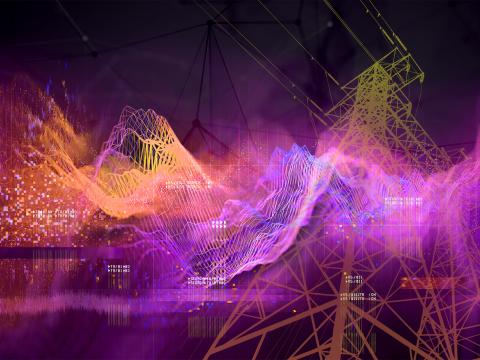powerNET Testbed

Our nation’s critical infrastructure supports the security and wellbeing of our society. Maintaining the resilience of important markets and services—from banking and manufacturing to emergency services and energy—is vital to upholding our way of life.
The United States' energy control systems, both physical and digital, face an ever-increasing amount of scrutiny and more and more threats. However, investigating these threats to understand and mitigate them isn’t possible on operational systems. Simulation testbeds are necessary to enable research and development of new tools and methods that will harden our current and future infrastructure.
powerNET supports real-world experiments
PNNL’s Power Networking, Equipment, and Technology (powerNET) testbed is a remotely accessible, multiuser, experimental testbed for collaborative power system and smart grid research. The testbed integrates real-world equipment with virtual and simulation capabilities to create an environment that can dynamically configure into many experimental setups to meet the varied needs of the research community.
Simulating grid solutions with powerNET
PNNL’s powerNET testbed helps researchers analyze and evaluate current power grid technologies and environments to unearth vulnerabilities and develop new protection and mitigation measures or systems. Fusing data between simulated, virtualized, and physical equipment leads to the creation of realistic and scalable environments where new functionality and ideas can be exercised.